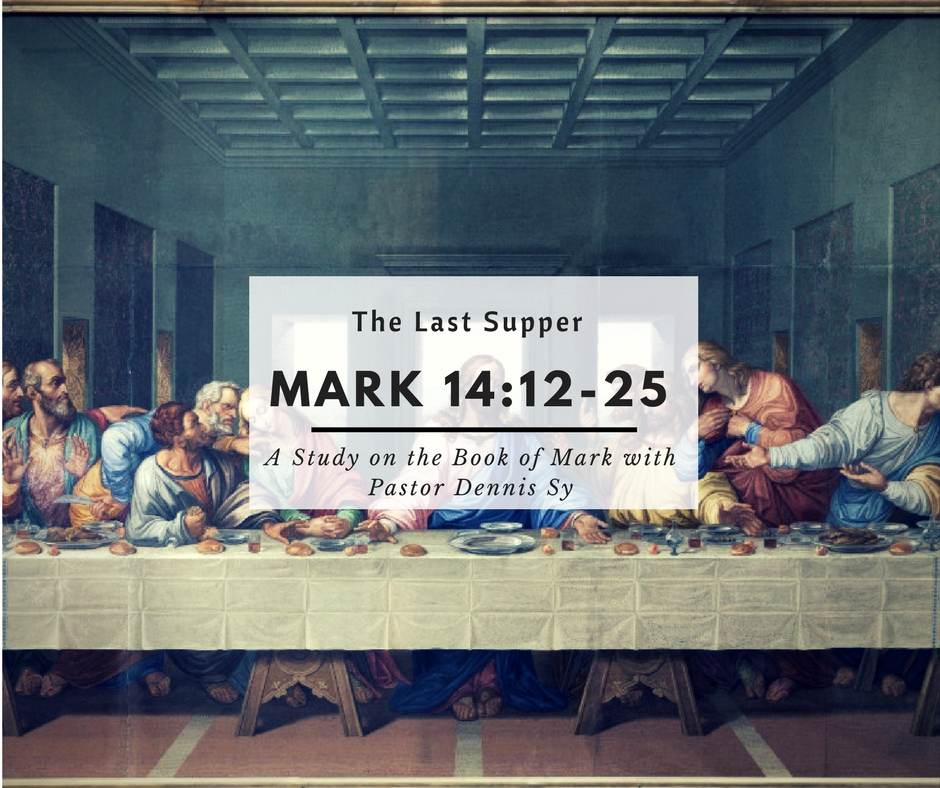Mark 14:12-21
12 And on the first day of Unleavened Bread, when they sacrificed the Passover lamb, his disciples said to him, “Where will you have us go and prepare for you to eat the Passover?” 13 And he sent two of his disciples and said to them, “Go into the city, and a man carrying a jar of water will meet you. Follow him, 14 and wherever he enters, say to the master of the house, ‘The Teacher says, Where is my guest room, where I may eat the Passover with my disciples?’ 15 And he will show you a large upper room furnished and ready; there prepare for us.” 16 And the disciples set out and went to the city and found it just as he had told them, and they prepared the Passover.
It was the first day of a holiday for the Israelites, and Jesus asked the disciples to prepare the Passover meal they were to have that night. It’s amazing how Jesus moved in divine knowledge to know who to talk to and to whom the disciples would get the place where they will have supper. We see how God is in the details.
THE PASSOVER MEAL
In Jesus the King, Tim Keller explains that the Passover meal had to be prepared in a certain way and had a distinct form. This includes four points at which the one presiding the dinner will explain the symbolism as traditions would foretell.
The four cups of wine during the Passover meal represents the four promises made by God in Exodus 6:6-7. This includes
- the promise of rescue from Egypt
- the promise of freedom from slavery
- the promise of redemption by God’s divine power
- the promise of a renewed relationship with God. (Keller, King’s Cross, p 164-165)
During supper, while everybody had their fill, Jesus shared that one of them in the table would betray him. It was a tense moment during supper to have brought this subject up. You could feel the emotion here because the very man whom Jesus loved and invited to his inner circle was going to betray him. Jesus was sad for Judas though Judas had in his free will decided to betray Jesus. We can belabor theologically here but what we can note so far is that the sovereignty of God never cancels out human freedom and moral responsibility. (page 327, Exalting Jesus in Mark)
17 And when it was evening, he came with the twelve. 18 And as they were reclining at table and eating, Jesus said, “Truly, I say to you, one of you will betray me, one who is eating with me.” 19 They began to be sorrowful and to say to him one after another, “Is it I?” 20 He said to them, “It is one of the twelve, one who is dipping bread into the dish with me. 21 For the Son of Man goes as it is written of him, but woe to that man by whom the Son of Man is betrayed! It would have been better for that man if he had not been born.”
Jumping from a very tense moment, and the meal about to be done, Jesus stands up and gets the third cup to declare Deuteronomy 26 as with tradition, remembering Israel’s captivity and deliverance. But then Jesus diverted from the traditional script and went on to say:
22 And as they were eating, he took bread, and after blessing it broke it and gave it to them, and said, “Take; this is my body.” 23 And he took a cup, and when he had given thanks he gave it to them, and they all drank of it. 24 And he said to them, “This is my blood of the covenant, which is poured out for many. 25 Truly, I say to you, I will not drink again of the fruit of the vine until that day when I drink it new in the kingdom of God.”
Jesus went off script and declared THIS IS MY BODY. This is my affliction and my suffering. This would be the ultimate sacrifice that once and for all would overcome sin and death. As with traditions in the New Testament times, when blood was part of the conversation – it was an oath being made by Jesus that unless I die for the sins of the people and see a new covenant (v25), then my kingdom will not be established. Jesus was fully committed to die for our sins. There was no more turning back.
During the Passover meal, there was no mentioned of the main course that was supposed to be a lamb. It ended with Jesus breaking the bread and drinking the wine with the disciples. Here we can assume that Jesus was going to be the “main course.” He was about to enter the biggest fight of his life – to die on the cross for the sins of men. He was the ultimate and final sacrifice.
Isaiah 53:6-7,12
6 All we like sheep have gone astray; we have turned—every one—to his own way; and the Lord has laid on him the iniquity of us all. 7 He was oppressed, and he was afflicted, yet he opened not his mouth; like a lamb that is led to the slaughter, and like a sheep that before its shearers is silent, so he opened not his mouth.
Lord as I partake of your communion, may I never see it as a ritual, but as a reminder of the pain, suffering, and affliction you went through for the church and me. Your love is amazing and overwhelming. Thank you, Jesus, for dying on the cross for my sins.

